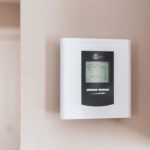Working as a landlord requires people skills and business sense. Because you’ll be marketing your land and ensuring your current tenants are both safe and content, you’ll need to make it easy for interested parties to contact you. That said, there’s a difference between letting tenants reach you and giving them too much access to your personal life. When it comes to giving out your landlord contact information, it’s best to establish your boundaries early on.
What Landlord Contact Information Should You Give Your Tenants?
Tenants and interested parties need to contact you if they have questions about your property. With that in mind, you will need landlord contact information to share with them at a moment’s notice. This information can include:
- Your business phone number
- Your business email
- Access to an online chatbot (if applicable)
- Your assistant’s work phone number and email (if applicable)
- Your main office address
Note here that you should not give out your personal phone number to any of your tenants nor should you share your personal email or your address. Instead, limit your landlord contact information to work environments or work tools only.
Protecting Your Identity as a Landlord
When you provide space for dozens, if not hundreds, of tenants, you need to make a point to protect your private information. The work you do as a landlord, be it maintenance, rent management, or general disaster response, needs to stay separate from your everyday life. With that in mind, you’ll want to take particular steps to keep your non-work contact information and identity private.
Some of the best ways to limit tenants’ access to your private information include:
Collect Rent Through a Third Party
While you can collect rent through your office or even your bank, it’s best to rely on an appropriate third party. There are many third-party rent apps out in the world today, and all of them strive to make it easy for you to collect your tenants’ regular fees. PayRent protects landlord’s personal information while still giving them the tools to control their rent collection. Enjoy faster rent deposits alongside an increased sense of personal privacy.
Use a PO Box
If you do want to collect rent via check, set up a PO box. PO boxes are boxes that you can visit at your leisure to collect letters, checks, junk mail, and more. When you use a PO box for things like rent, you keep knowledge of your personal address out of residents’ hands. You also control what kind of mail you have to interact with on a daily basis, a process that can make every day a little more enjoyable.
Establish a Business Email
The last thing you want to do is use your personal email to manage your rental dealings. Not only is it easy to overlook emails in your inbox, but the lack of distinction between work and pleasure messages can ruin your day. You can easily create a new email address for your rental property through Gmail, Yahoo, or other service providers.
Before you purchase property to lease, make sure you have a work email on stand-by. Your management team, if applicable, should also have work emails. The fewer gaps in your ranks, the easier it will be for you and your team to maintain your private lives.
Seeking Contact Support for You and Your Tenants
You’re under no obligation to try and handle all of your tenants’ problems on your own, of course. As such, you can cultivate a list of numbers of email addresses that your tenants can use in case of an emergency. This contact information can include:
- Your regular maintenance number
- Your emergency maintenance number
- The work phone numbers and email addresses of other staff members on your team
- An external contractor’s work email and phone number
- Numbers for electric companies and members of local government
To put this another way, being a landlord is all about delegation. The more people you can help your tenants access, the easier it will be for them to ensure their own comfort on your property. Similarly, when your tenants have this cheat sheet to reference, you can enjoy a sense of security.
Serving Your Tenants and Protecting Yourself
As a landlord, you both serve your tenants and your family. To find the balance between these two demands, you need to set boundaries. Tenants should have landlord contact information to access you and your team if something goes amiss with one of their units. However, no tenant should come into possession of your personal phone number, address, or other information.
With that in mind, take the time you need before investing in a lot to set up your work phone and email. The sooner you can get these tools online, the sooner you can go about creating a safe, effective wall between yourself and your work.










